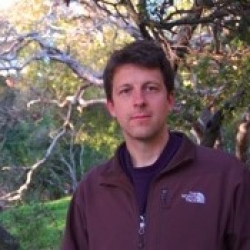Alexander (Zan) Stine

Contact Information
Biography
Education:
Sc. B Geology/Physics-Mathematics - Brown University
Sc. M Climate Physics and Chemistry - Massachusetts Institute of Technology
Ph.D. Earth & Planetary Science – UC Berkeley
Research Description:
My research focuses on how to separate natural climate variability from human-induced climate change in the observational record. Because we have been routinely measuring surface temperature over most of the world's land surface for less than 150 years, indirect methods of inferring temperature must be employed if we are to build the long records necessary to fully understand the scale of human influence on global climate. Currently much of my work focuses on problems in the interpretation of tree rings as a proxy for past climate variability, and on how our reconstructions of past climates can be improved by incorporating ecological laws into our reconstruction methodologies. I also use early documentary records from the last 4000 years as proxies for climate variability and to understand how preindustrial societies were affected by climate variability. This work is typically done in collaboration with historians. I am also interested in understanding how global rain patterns change in response to changing surface temperatures, and how we can better use historical records to understand this response.
I encourage students interested in working with me to contact me via email. Most students who work with me take on projects which use tree-rings to reconstruct the climate history of California. This work typically involves a combination of field work, laboratory work, and quantitative analysis. I also sometimes take students interested in working on more purely quantitative problems involving the use of large datasets to test hypotheses as to the response of Earth to greenhouse gasses. And I have some interesting projects for students who like archival research in the library.